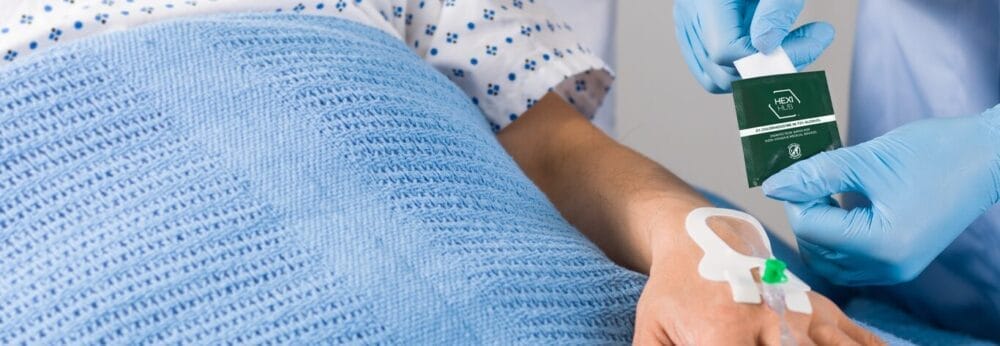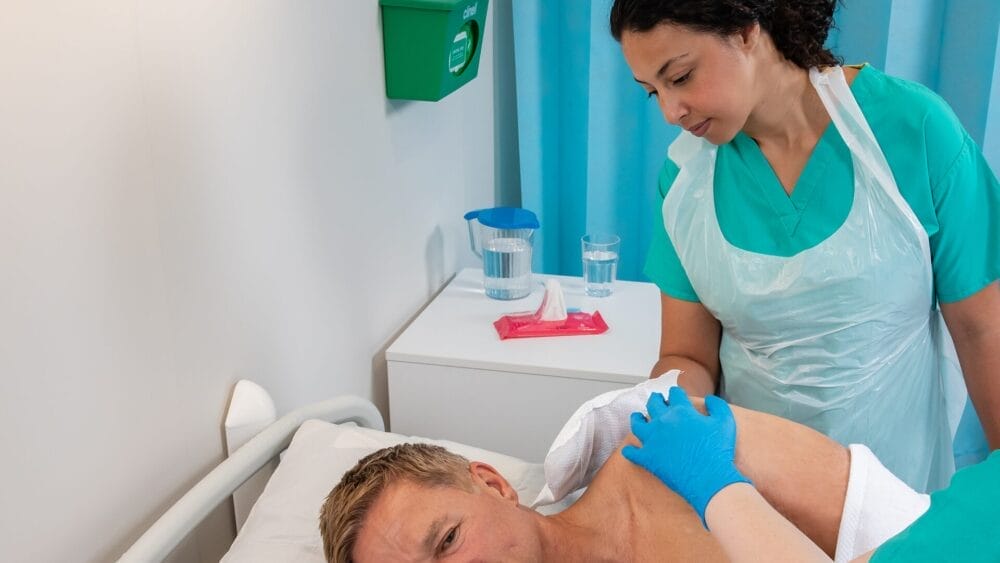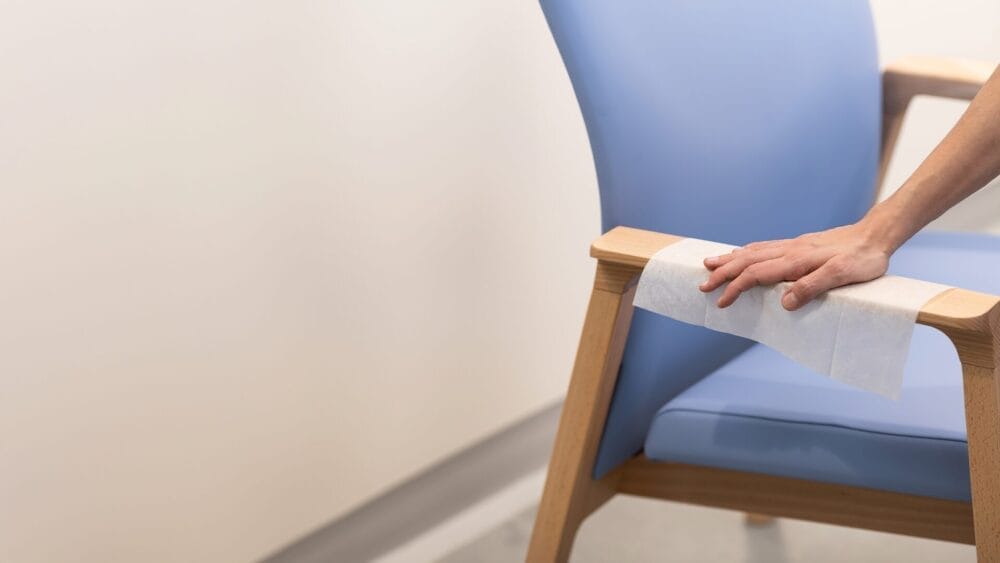Posted
5th March 2024
Products, Research
King’s College Hospital NHS Foundation Trust, one of London’s largest and busiest teaching hospitals, faced significant challenges with Carbapenemase-producing Enterobacteriaceae (CPE) outbreaks, particularly during critical periods. Through two pivotal case studies, the hospital demonstrated the efficacy of Clinell products in combating these resistant infections, showcasing a blend of innovation and commitment to patient care.
Case Study 1: Elderly Care Ward’s Battle Against CPE
During the COVID-19 pandemic, an Elderly Care ward was overwhelmed by a Klebsiella pneumoniae CPE outbreak. Traditional infection prevention and control measures were faltering. In a strategic move, the hospital introduced Clinell Chlorhexidine Wash Cloths and Bedbath Wipes, streamlining hygiene practices while focusing on patient comfort. This intervention led to a dramatic decline in CPE cases, supported by positive feedback from 75% of patients and 84% of staff, affirming the products’ effectiveness and ease of use.
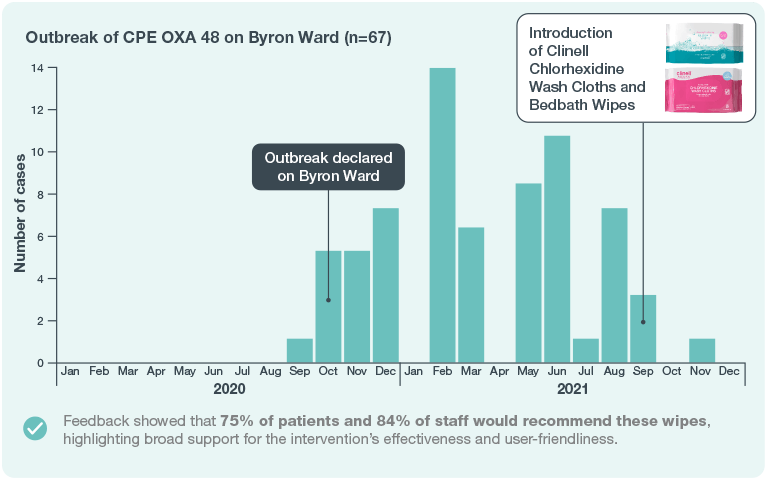
Ashley Flores, Director of Infection Prevention & Control at King’s College Hospital, said, “Clinell Chlorhexidine Wash Cloths and Bedbath Wipes were introduced at King’s College Hospital Foundation NHS Trust, during a CPE outbreak. The implementation of Clinell Chlorhexidine Wash Cloths and Bedbath Wipes were successful in bringing the outbreak under control, probably by interrupting the chain of transmission associated with the use of sinks, wash bowls and associated equipment. Use of Clinell Chlorhexidine Wash Cloths may also have reduced any potential reservoir of microorganisms on patients’ skin. As an adjunct to the recommended measures in the UKHSA Framework of Actions to Control CPE, this has been a successful intervention in bringing our CPE outbreak under control.”
Case Study 2: Comprehensive Approach on a Liver Ward
A liver ward grappling with a surge in CPE cases implemented a phased intervention using Clinell products, including Clinell Peracetic Acid Wipes and Hand Wipes, coupled with enhanced environmental cleaning and staff training. This multifaceted strategy resulted in a significant drop in CPE cases, with no new cases reported up to January 2024. The feedback was overwhelmingly positive, highlighting the critical role of patient and staff cooperation in infection control.
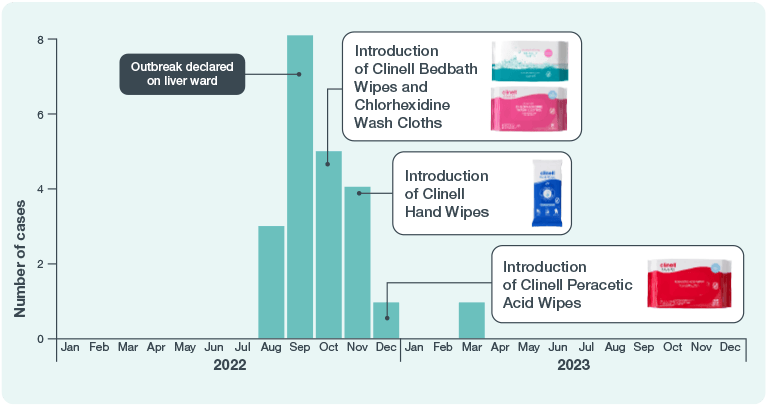
Rashmi Thomas, Infection Prevention and Control Clinical Nurse Specialist, King’s College Hospital, said, “The introduction of Clinell Chlorhexidine Wash Cloths, Hand Wipes, Bedbath Wipes
and Peracetic Acid Wipes, marked a turning point in our infection control practices. The emphasis is frequently on hand hygiene for healthcare professionals, although it is recognised that patients’ hands may also be involved, though the evidence is fairly limited. From a bactericidal standpoint, antimicrobial hand wipes are more effective than soap and water and can be used in place of hand washing especially
when assisting patients. The implementation of Clinell Hand Wipes has been a viable approach for enhancing patient hand hygiene, in part through user satisfaction and decreasing CPE cases.”
Download the full case study here or get in touch with us here to find out how our products may be able to help your organisation.
SHARE THIS ARTICLE
Tags
Latest News
Embracing sustainability and cost savings: The journey of Clinell Indicator Notes to paper-based solutions
At GAMA Healthcare, we’ve always prided ourselves on being at…
Introducing HEXI HUB: A seamless transition in our product line
We’re pleased to announce an update to our product offering…
Innovative solutions for tackling Carbapenemase-producing Enterobacteriaceae (CPE) at King’s College Hospitals
King’s College Hospital NHS Foundation Trust, one of London’s largest…
Gloves Off: reducing unnecessary plastic waste during environmental cleaning and disinfection
In this blog, Dr Phil Norville discusses the momentum-gaining ‘Gloves…

